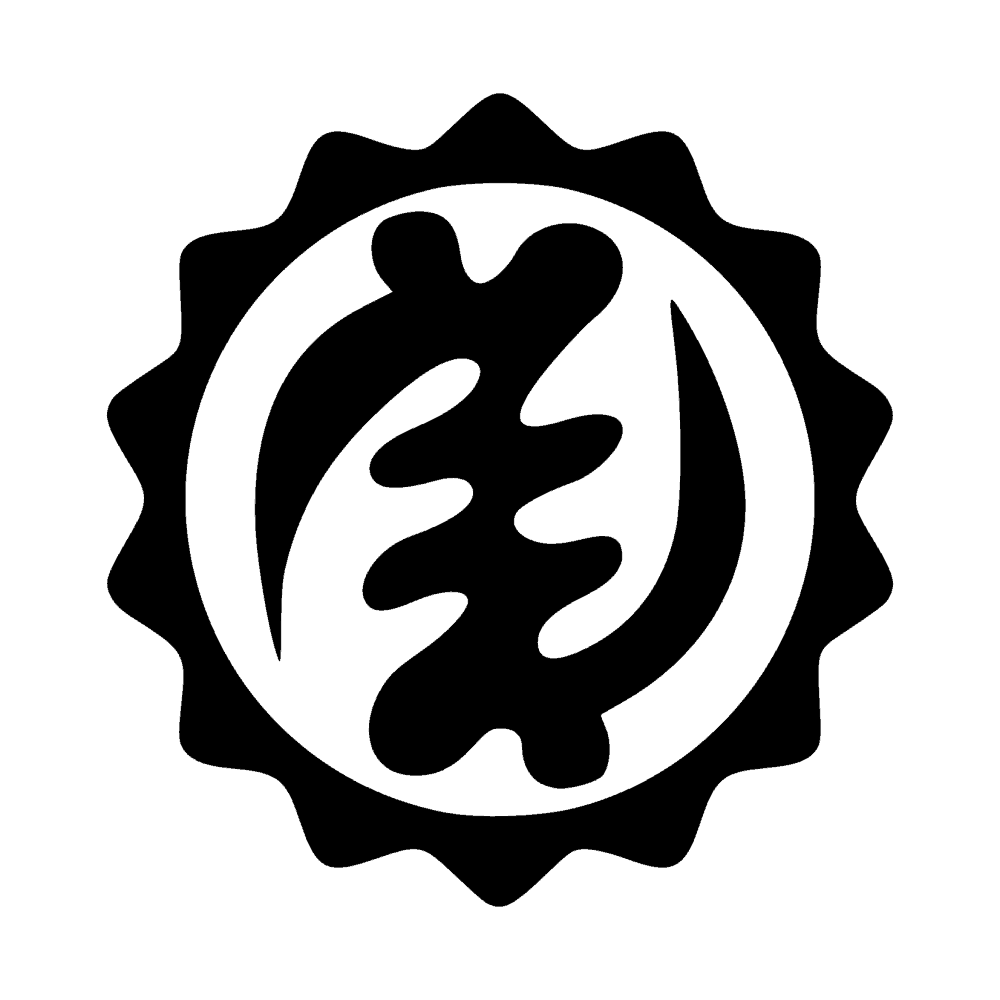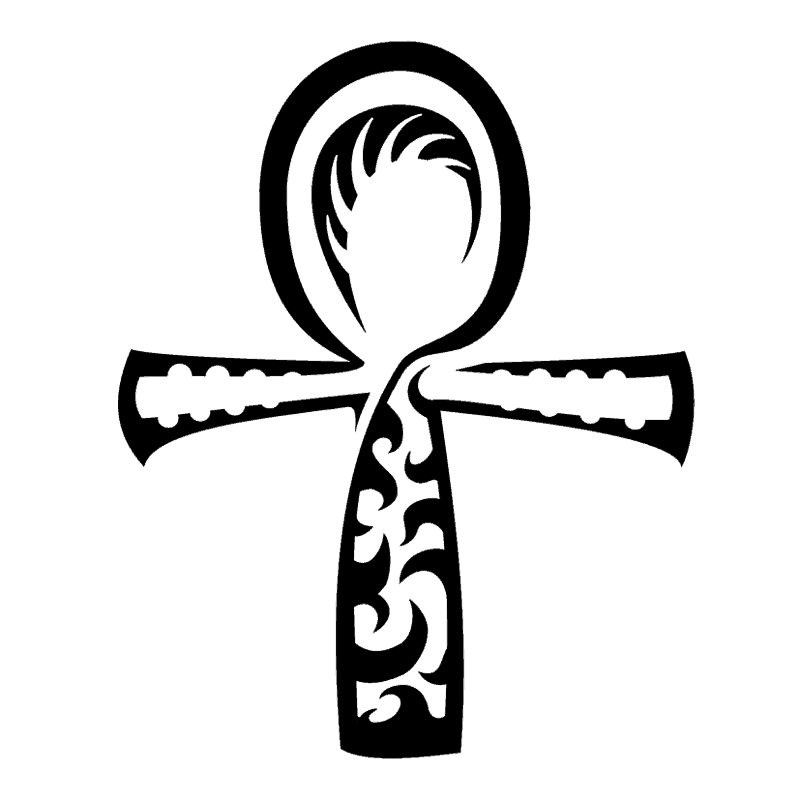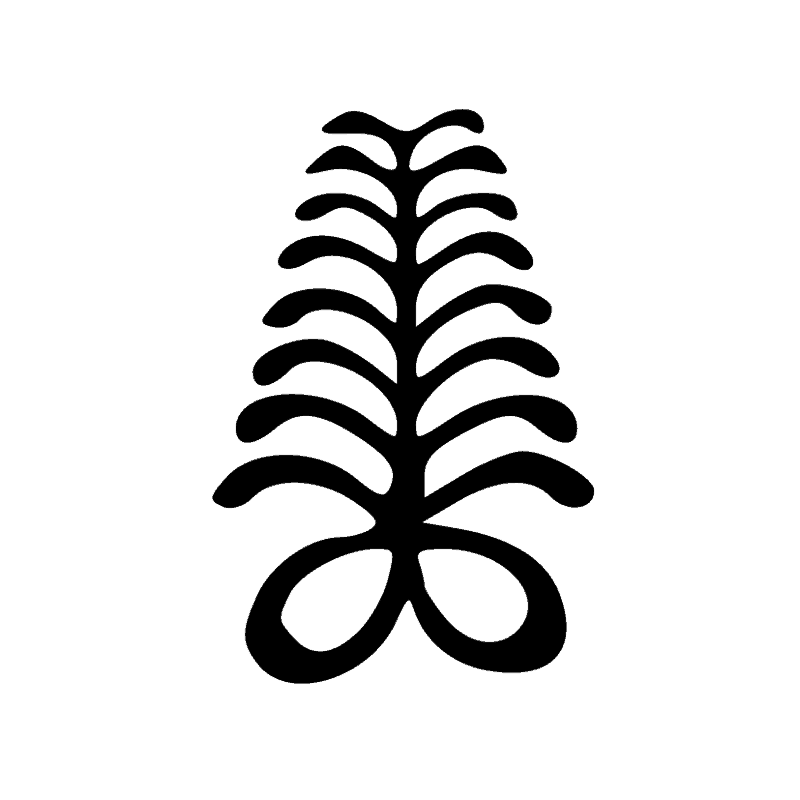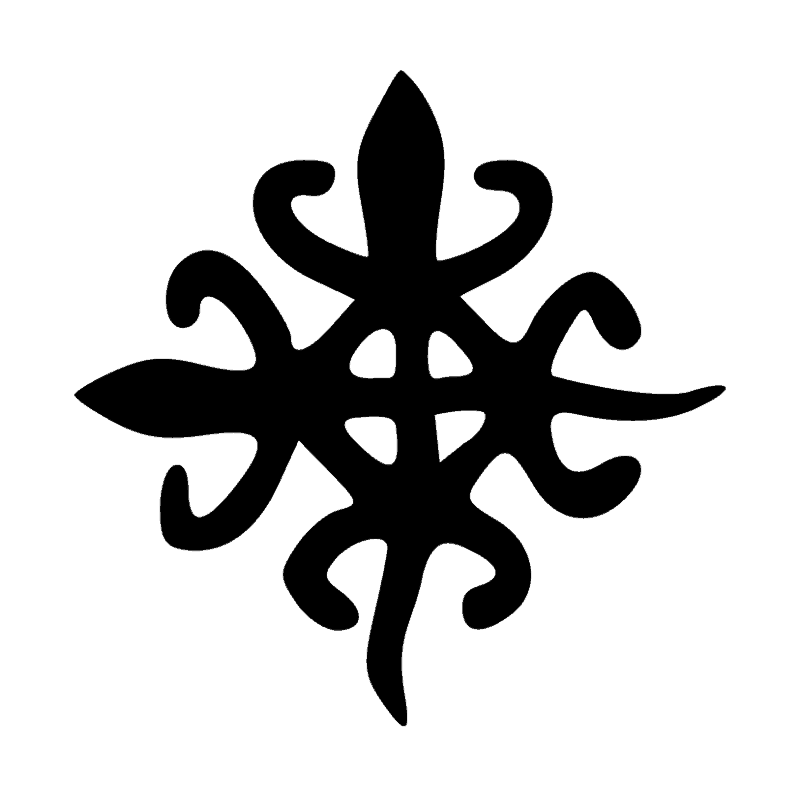10 Interesting African Tribal Tattoos

Africans have had cultural tattoos since time immemorial. Tattoos in Africa are not merely for aesthetic purposes but also for substantive purposes. Tattoos have been used as a form of communication.
Some of the important messages conveyed through tattoos include personal identity, status identity, and relationship identity. The ancient Egyptians in the North and the Ashantis in the West are some of the communities that had elaborate symbols and tattoos with deeper cultural meaning.
Swahilis in the East were also great in tattoo symbolizations. The following are the ten interesting African tribal tattoos and their meanings which will help you have a better understanding of various cultures within Africa.
Discover more: 10 Super Talented African Artists
10. Godliness
Africans are inherently religious. Religion is deeply etched in African culture and permeates all facets of life. God is considered the ultimate supreme being adored and worshipped in African Traditional Religion (ATR).
Gye Nyame – Except for God
God! Who are you? Well, “I am who I am” so says one of the ancient manifestations. Everyone has own manifestation of this life form. Except for God, we know not.
That is the essence of Gye Nyame – God’s supremacy. God’s exceptionalism. The Gye Nyame is used by the Songhoi cultural tradition to give reverence to the almighty God of the Songhoi people. Gye Tattoo

9. Life and Eternity
Every society values life. African society is not any different. Yet, the way by which African society views life makes it unique. Unlike some other societies, African Traditional Religion considers the living life as just one stage in an eternity that is only limited by one’s memory.
The unborn are considered as part of life. The dead are considered as part of life. Those that the memory could no longer hold (ancestors) are considered part of life – the eternity. In African Traditional Religion, eternity is not for the chosen but for every soul.
Ankh Cross
Who would be there without life? Would eternity exist without it? Eternity is nothing but a life form at its purest apex of actualization.
Ankh is a symbol of eternity by the ancient black Africans that occupied Egypt under their Pharaoh. The black Africans of Egypt used to mummify their dead and buried their Kings (Pharaohs) with all that they needed for life in anticipation that they would require them in their ‘afterlife’.
Ankh Tattoo

8. Fertility and longevity
Fertility is the surest path to the continuity of the human race. It is the life force that ensures that this world – a mental construct of our own imaginations, exists. It is the alpha of life.
Kobe (Torturtle)
No hurry in Africa! Who knows the importance of taking time to live longer better than a tortoise? Well, a tortoise can live as twice as a human being. It is normal for a tortoise to clock a century of life, while it is normal to clock just slightly above half of that.
Kobe is a Swahili word for tortoise. A tortoise is known for being patient, calm, and graceful. They are also known to hatch most of their eggs. This makes them the best African symbol for fertility and longevity.
Furthermore, they represent qualities of persistence, taking time to calmly live in the moment without rushing over, and making every step consciously count in life. Some African societies believe that the universe formed from the shell of a tortoise, thus, the tortoise is a life giver.
Like native Americans, Africans too have a special place for turtles. “Mwenda pole hajikwai” is a Swahili proverb that means “he who goes cautiously slow never injures himself”. It is a proverb that derives its origins from the tortoise’ character.
7. Love and Friendship
Without love, there is hardly any society. Various societies have their unique way and symbol of expressing love. Some are overtly expressive while some are covertly intimate. Africans too, though not overtly expressive, have a subtle intimate way of expressing love.
Odo nyera fie kwam – the power of love
Love conquers them all. There is neither mighty nor the weak before it, simply victims and benefactors. What is important is to cherish every moment that it turns you a favor.
Odo Tattoo

6. War and Tragedy
Every society has its moment of war and a moment of tragedy. No society has ever escaped this.
Mbiu Ya Mgambo / Akobon /Vuvuzela (the horn’s siren)
Life force flows like mighty waves. There are peaks and troughs. War and tragedy are the troughs of the life force. They are inevitable just as without them there is no wave.
From the peaks of joy, it is inevitable that there will be a descent to the trough of sorrow. Like hills and valleys – so are joys and sorrows – a perfect landscape. In African tradition, the sound of a horn (Mbiu Ya Mgambo) used to symbolize that something unusual has happened.
The special horn used to be blown by the chief to summon people to a meeting point to receive instructions on the next course of action. This brought in the proverb “mbiu ya mgambo ikilia jua kuna jambo”, translated as “whenever the horn bellows, know that something not ordinary has happened”.
Horn Tattoo

5. Foresight, Perspective, Elegance, and Excellence
Being able to see far, having the right multidimensional insight, and being elegant enough not to be too proud nor too diminutive is what calls for a life with assured moves.
Twiga (Giraffe)
Twiga is a Swahili name for Giraffe. The giraffe is a popular animal in Africa’s Savanna. It is the tallest of them all and makes long slow strides. Its head is often high above twigs and shrub canopies.
Africans attach significant meaning to it and encourages their leaders to be like giraffes – see far, make gradual assured steps, not being proud, not being aggressive, but when confronted or challenged, use the violent swing of the horned head to hit the enemy hard or the long powerful hind legs to crack his skull.
Yes, do not attack, but put attackers to their rightful place. Ultimately, raise your head above the crowd.
Twiga Tattoo

4. Resourcefulness and Abundance
Resourcefulness is about being able to serve. Abundance comes from endless serving.
Aya (fern)
A fern (aya, in the Adinkra community) has unique symbolization in various African traditions. In some African societies, it is regarded as a ‘survivor’ plan due to its ability to survive in swamps, on tree trunks and some environments where common vegetations would hardly survive.
Yet, the fern provides resources for shelter – for antelopes and hares to hide; for birds to find materials for their nest; and for humans to use in thatching their houses. Being called upon to be like Aya is to be called upon to be an enduring resource despite challenges and hardships.
Aya Tattoo

3. Unity and Commitment
With the understanding of our own individuality and diversity comes unity of purpose. The unity of purpose begets devotion and commitment.
Funtunfunefu Denkyemfunefu (Siamese Crocodiles)
According to the Adinkra people, Siamese crocodiles may appear to be at cross-purposes as they face different directions but live together in harmony and unity. Thus, unity does not necessarily mean sameness. Individual identity and uniqueness must not be sacrificed for the same of sameness.
Funtu Tattoo

2. Beauty and Femininity
Beauty and femininity are treasured by every society. Africans also treasure the worth of women as the beauty of life, the nurture of life and the caregiver of the family.
Duafe (Kichana, the comb)
All over the world, a woman’s hair is the most powerful symbol of femininity as the woman’s hair is uniquely endowed compared to that of men. In Africa, there so many styles of plaiting and cutting hair just to accentuate the woman’s beauty.
The comb is referred to as Duafe (in the Ashanti community), or Kichana (Swahili community). The comb is often associated with women hair as traditional men rarely used to comb their hair.
Thus, the comb is the symbol of a woman’s beauty and femininity. The comb has a deeper meaning in the sense of “caring, nurturing, and tending” for no one does this better than a woman.
Kichana Tattoo

1. Power and Protection
With strength and vitality comes to power. The power to achieve and protect is the supremacy of existence.
Ngwena – the menacing crocodile
Ngwena is a Bantu/Swahili word for crocodile. When you step into crocodile infested water, you will be lucky to swim through. While crocodiles are relatively weak on shore, they are extremely ferocious offshore.
Their powerful jaws can easily dismember your limbs. They are known to be mischievous schemers who would appear calm and move gracefully only to disguise their true nature and pounce on their prey once within reach. In politics, they say power is never given but grabbed.
Maybe that’s why politicians seem to ‘shed crocodile tears’ when they mean to deceive people by preying their emotions till they get power from them. Once in power, guns and bombs are ever closer to them. Well, none other than “samba” Mugabe of Zimbabwe knows what his loyal lieutenant nicknamed “Ngwena” did to him.
Ngwena Tattoos

Parting words
Traditional Africa was rich in symbolism as there was no written alphabet. Thus, drawings, carvings, and tattoos used to be stores of memory. It was the way knowledge and tradition could easily be transmitted from generation to generation. Art in Africa is not just art for art’s sake but it does have both form and substance.
References:

